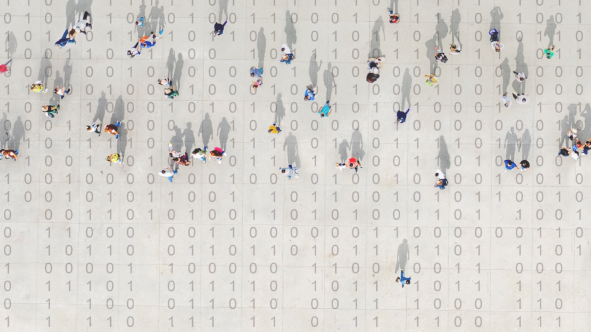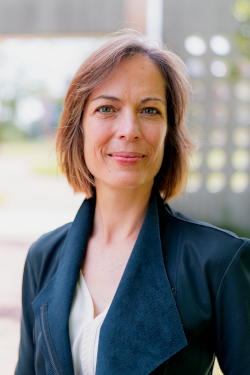
Data about COVID-19 were everywhere during the pandemic, but how will all this data continue to be managed and kept open so that it is usable in the future? We spoke with Kathleen Gregory, researcher at the Centre for Science and Technology Studies (CWTS), who will study this question in a new project that has just been awarded a Veni grant.

First of all, congratulations on receiving this grant! How did you react when you first heard the news?
"Thank you! I had a hard time letting the news sink in, to be honest. When I first received the notification, I was at a retreat for the Research on Research Institute, in the midst of the English countryside. My mind was busy thinking about other research projects; so I needed a moment to change gears and think about my Veni idea again. With hindsight, I think that this was the perfect place to receive the notification, as I had some time to process the good news before getting back to real life."
What has your research been about so far?
"The connecting thread in my work has been an interest in how scholarly information (of all types) is produced, communicated, understood and used. This stems in part from my practical experience working in academic libraries in the United States and Germany, but is also something which has grown to encompass topics related to open science, research data management, and research evaluation. My PhD work investigated how researchers discover and reuse data with an eye to informing the development of search engines for data. I have also worked on projects exploring other related practices, such as visualising or citing data. More recently, my focus has been on projects relating to research evaluation, asking e.g. how peer review is conducted in different areas of academic work or investigating the 'research information' which is used to conduct academic evaluations."
Can you tell us a bit more about the Veni grant that you have received?
"The Veni grant, which is part of the Dutch Research Council's (NWO) Talent Programme, provides funding for early career researchers to pursue creative and innovative projects. This funding will cover three years of my research time and will help me to form deep collaborations with national and international partners and colleagues. It will also provide me with the freedom to further define and expand my personal research agenda."
What are you planning to study with the help of this grant?
"This grant will allow me to critically investigate a pressing challenge: the sustainability of open data infrastructures. During the COVID-19 pandemic, a massive amount of data was created, stored and made available on different platforms. Do you remember submitting data about our symptoms using apps on our phones and consulting government dashboards for the latest figures? Now that the pandemic is over, what will happen to these different forms of data and the infrastructures used to collect and store them? Will they be maintained, and will the data be usable in the future? My research will investigate the sustainability of data infrastructures in academic research, governments, and citizen science. While COVID-19 data provides an ideal case to study the dynamics of open data infrastructures, the problem of sustainability is much larger and extends to nearly all types of data."
Is this project related to open science, then?
"Yes, this project is situated within the broader discourse about open science and recognises that open science is a complex phenomenon that is not limited to academia alone, but rather something that occurs in various sites (e.g. in governments and citizen science). While I am a firm believer in (and practitioner of!) open science, I also believe that there needs to be critical research accompanying the open science movement in order to fully understand how it is implemented in different contexts."
What opportunities for collaboration do you see thanks to the grant?
"One of the most exciting aspects of this project is the opportunity it provides for collaborating with researchers at CWTS as well as with people working on the ground at the various data infrastructures I will study, who will be key partners in the research. The interdisciplinary research expertise present at CWTS provides a rich space for collaboration across its three focal areas: Information & Openness, Engagement & Inclusion, and Evaluation & Culture. I am also looking forward to collaborating with partners across Leiden University to experiment with new methods and international partners working at data infrastructures."
What do you think will be the impact of this research project?
"Aside from new empirical insights, this research aims to inform how data are curated in academia, governments, and citizen science projects. Another goal is to co-develop recommendations for sustaining open data infrastructures. Finally, the project aims to make the often invisible work involved in caring for (COVID-19) data more visible to public audiences through a series of unique data visualisations, inspired by other infrastructural maps, which will be produced throughout the project."

